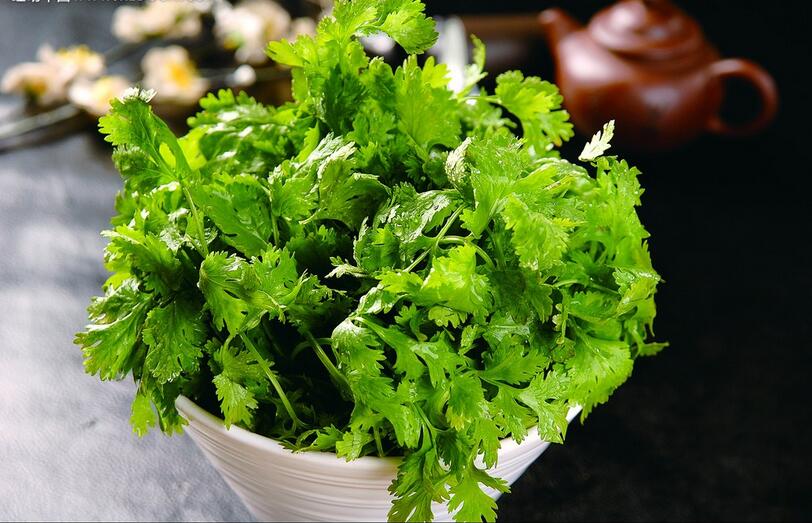(单词翻译:单击)
Aldehydes are one of the main by products of soap making.
醛是肥皂的主要成分之一。
There are a few different aldehydes in the cilantro aroma “recipe.
香菜的“气味配方”中含有多种不同的醛。
One emits the offensive soapy odor that makes you cringe.
其中一种醛会散发令人反感的肥皂水气味,使你敬而远之。
But, another produces the fresh, green, citrusy aroma that people like me find so appealing.
不过,另一种则会散发清新的橘香味,像我就很喜欢这种香味。

Our ability to detect these different parts of the cilantro scent spectrum varies widely, and is linked to our genetics.
人类探测香菜各种气味的能力因人而异,而这与我们的基因息息相关。
Some people can’t smell the good part at all.
有些人闻不到其中清新的气味。
We need more research to figure out the exact details, but the science of smells indicates that, when it comes to liking or hating cilantro, genetics matter.
我们需要更多的研究来挖掘确切的信息。然而气味科学表明,喜欢或讨厌香菜与人类的遗传基因有关。
Thanks to our DNA, we pick up on the good and bad parts of the cilantro sensory experience in different ways.
多亏了人体中的DNA,我们才能通过不同的方式感受到香菜中令人愉悦和反感的气味。
译文为可可英语翻译,未经授权请勿转载!


